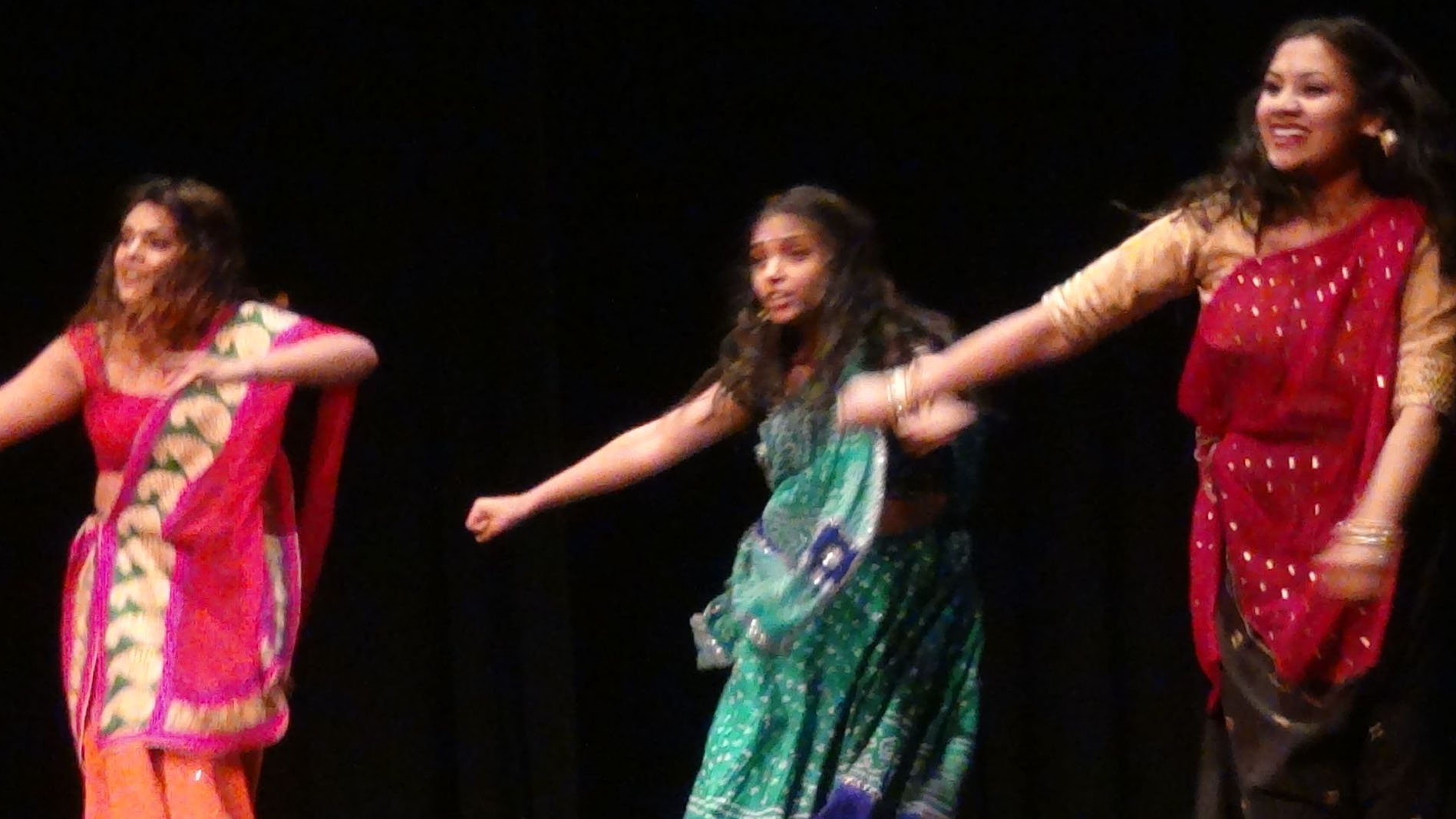
Student dancers from the 2014 Rich Man, Poor Man dinner
If one in ten people is served a steak dinner, how many people around the world experience health benefits?
This may seem like a trick question, but it's one that organizers and attendees of the Rich Man, Poor Man fundraiser take very seriously. The annual event, hosted by the Faculty of Medicine & Dentistry, the School of Public Health, the Students' International Health Association (SIHA) and the Medical Students' Association (MSA) Global Health Program raises money for global health education opportunities and program development at the University of Alberta and internationally. Guests enjoy local cultural entertainment and a silent auction, but the real draw is dinner. Ten guests are seated to a table: one enjoys a steak dinner with all the fixings while the other nine enjoy a modest vegetarian meal including pierogies that's more representative of meals eaten by 90 per cent of the world's population.
Unlike most global health fundraisers, this money doesn't fuel international electives. It's dedicated to giving medical residents from developing countries the education they need to better serve their communities.
"Our aim is to raise funds primarily to bring learners from low- to middle-income countries to Canada for short periods of enhanced training," says Jill Konkin, associate dean of community engagement in the Faculty of Medicine & Dentistry. She notes that arrangements are made to bring residents to other universities if Canada does not offer the most practical learning environment because of the advanced medical infrastructure.
Konkin recalls a Ugandan resident who was scheduled to come to Canada last year for cardiovascular training. When it didn't work out, U of Alberta representatives arranged for her to train in one of Uganda's largest universities. Her fees and living arrangements were paid for through the program, thanks to the Rich Man, Poor Man fundraiser.
"It's not always best to bring residents here. When you think about it, often our working environment does not mirror the one these residents will return to," Konkin explains. "When they're going to have the resources to be able to use [their training] when they do go home, it makes perfect sense to bring them here. They can be in a high-volume place where you focus training, and then they can go home and expand what they're able to do."
The program is currently restricted to medical trainees from schools with which the U of A has a working relationship.
"I would argue that [the U of A's global health programs are] not so much about sharing our expertise, but it's exploring together with our partners in other countries how we can ensure that medical knowledge through education and research is available to everyone throughout the world," Konkin says.
Although most of the proceeds from Rich Man, Poor Man are dedicated to training international medical residents, U of A students also benefit from the event. SIHA organizes and receives all proceeds from the silent auction to fund projects that support its mandate to provide sustainable projects within Alberta and Tanzania. Items donated from committed participants of the event and from local businesses have included hockey tickets, gift cards or locally produced art. The MSA Global Health Program raises funds for its programming through the annual photo auction and the 50/50 raffle.
The medical and SIHA students also contribute something much more valuable to the program: their time and their talents. They assist in the organization process, volunteer throughout the evening of the event and lend their talents to the stage. Each year, the Medical Students' Association jazz band and choir perform. Past years have included students performing cultural dances.